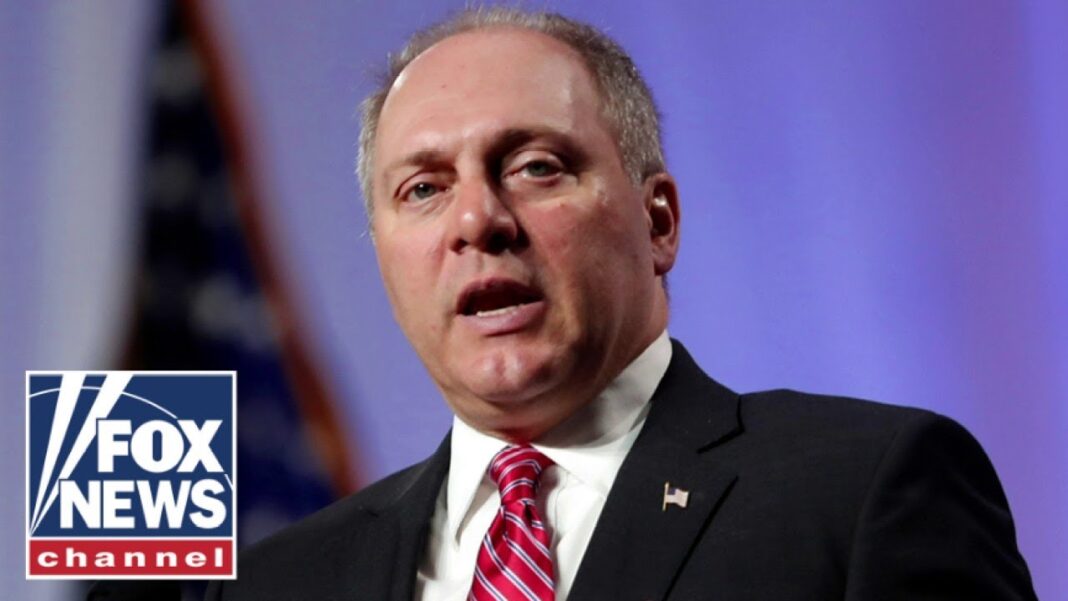Well, for years we’ve heard that the sea levels are rising, the polar ice caps are melting, and civilization only has just a few decades left. Politicians say this is all our fault, and the only way they’re going to be able to save us from this death march is through them.
Joe Biden: If we don’t keep the temperature from going above 1.5° C raised, then we’re in real trouble.
John Kerry: That’s what’s boiling the oceans, creating these atmospheric rivers, and the rain bombs, and sucking the moisture out of the land, and creating the droughts, and melting the ice, and raising the sea level . . .
Deb Haaland: Climate change is the crisis of our lifetime. We have an obligation to future generations to make sure that we have a planet for them to live on.
Jesse Walters: Young women are deciding to forgo having children because bringing new life into the world is too dangerous. Millennials are seeing therapists to discuss their climate anxiety. They’re being medicated for it. And the more anxious the young generation is, the easier they are to exploit. The politicians and the press prey on vulnerable Americas promising them salvation if they just pay more taxes and buy electric. As we reported last week, politicians like Sheldon Whitehouse write legislation sending millions of dollars in taxpayer cash to green energy companies that their spouses happen to work for. Scientists who dedicate their lives to the pursuit of truth now understand it pays more to be wrong. Scientists have quickly grasped that producing research papers that push climate alarmism attract more grant money, more book deals, and more notoriety. The more doom and gloom the more funding and fame. It’s a positive feedback loop between the researchers, the media, and the political policy makers. Destroy the fossil fuel industry and invest in the green energy industry, an industry that they’re all, coincidentally, invested in. Feel better about yourself and your bank account, just don’t think you’re actually lowering the world’s temperature. Not only is green energy a financial opportunity, it’s a convenient political excuse for fail policies. The Hawaiian Electric Company never did maintenance on the flammable grass that caught fire when the wind blew down their lines. Don’t sue us, it’s climate change. Global warming created the hurricane that started the fire. Well, my next guest says they’ve been using her data to manufacture this lie, and she’s ready to blow the whistle. Renowned climatologist and former Chair of the School of Earth and Atmospheric Sciences at Georgia Tech, Judith Curry joins us now. Judith, what happened in your career that led you to this place right now?
Judith Curry: Well, I started, you know, in doing my job as a scientist, you know, I continue to reevaluate the evidence, question the assumptions, and challenge the conclusions, that’s my job. And this became inconvenient when, you know, people had a specific narrative that they wanted to put forward about climate change and my questioning became inconvenient. I started criticizing scientists for not making their data publicly available, for not being transparent about their methods, for not for being overconfident and not paying attention to uncertainty, and trying to cancel their opponents, and anybody who criticize them. And I started speaking up, and this was in 2010, and at first the community didn’t know what to do with me, but then they quickly started labeling me as a denier and tried to discredit me, but and I’ve continued to do my job as a scientist and continue to point these things out. But I think my criticisms have new credibility with a new book that I published, Climate Uncertainty and Risk: Rethinking Our Response. It’s published by an academic press and it’s been extensively peer reviewed and extensively documented with references to the literature. So, I’m hoping that people will take more seriously my arguments, at this point, about how we are seriously mischaracterized this whole issue and we’re leading ourselves down a very bad path with some of these policies that are being implemented.
Jesse Walters: How have we mischaracterized it and how horrible are these policies that are created to fight climate change.
Judith Curry: Well, it’s been characterized as a very simple issue, as if carbon dioxide emitted from fossil fuels of some sort of a control knob on the climate, well it just flat out isn’t. Sure humans are influencing the climate to some extent, but natural climate variability is far and away the dominant factor. And they’re seizing on extreme weather events as motivating elimination of fossil fuels which is fairly ludicrous because a warming climate doesn’t necessarily, or there’s no evidence, that this is leading to worse extreme weather events. We’ve always had extreme weather, we’re currently having extreme weather, and we will have extreme weather in the future no matter what we do regarding fossil fuels. And so the urgency that is put forward, that we have to deal with this issue with all these made up targets, 1.5° C, whatever, is leading us to make hasty decisions that are bad. For example, wind and solar are very bad solutions for our energy supply. And if we would take our time and slowly work towards improving our energy supply, making it more abundant, cleaner, less expensive, you know, by the end of the 21st century we could be in a really good place. But we can really mess this up if we destroy our energy infrastructure in the short term in thinking that we can actually control the climate. We simply can’t.
Jesse Walters: Well, it’s refreshing to hear from a scientist like yourself who’s not hiding their data and is pursuing the truth and facts and we need more of that, and we look forward to reading your book when it comes out. Thank you so much, Judith, we really appreciate it. And good luck, I know it’s going to be quite a fight.







